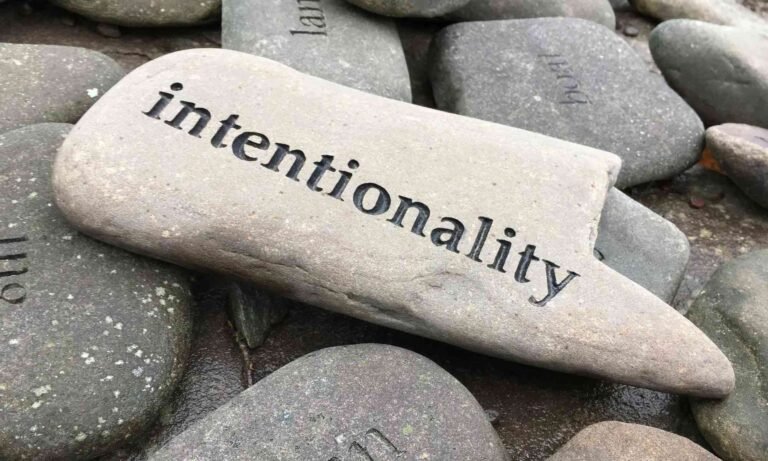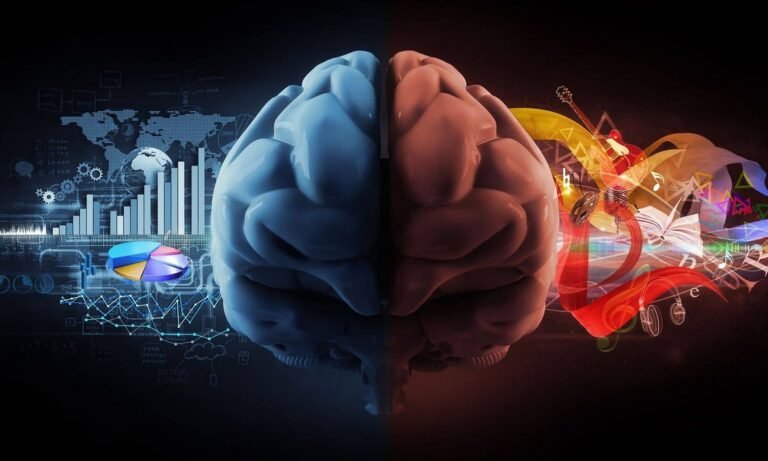Social upheaval refers to a profound and often rapid change in the social structure or order of a society. This variety of change can be instigated by numerous factors, with the most notable being economic, political, or cultural forces. Such upheaval can manifest in various forms, including protests, revolutions, or significant shifts in social norms, leading to considerable transformations within the community and its governing frameworks.
Social upheaval arises when deep-seated grievances – whether economic inequality, political repression, or social injustice – reach a breaking point. These moments of collective unrest are not merely chaotic interruptions, but catalysts for meaningful change. They force societies to confront systemic flaws and rethink the distribution of power and opportunity.
While the outcomes may vary, the underlying impulse remains the same: A drive to reshape society in the image of fairness, dignity, and shared agency. The Historical Examples of Social Upheaval further down below offer compelling evidence of how these forces have shaped pivotal chapters in history and continue to inspire movements around the world. By studying them, we gain crucial insight into how societies evolve – and how change is often forged through disruption.
These instances of social upheaval underscore the potential for change within societies, emphasizing how economic disparities or political oppression can catalyze collective action. As such transformations unfold, they can result in both progressive advancements and heightened challenges, illustrating the complex nature of societal evolution and the ongoing struggle for equity and justice. Understanding this concept is vital for analyzing current social dynamics and predicting future trends in society.
Historical Examples of Social Upheaval
Social upheaval has been a recurring theme in human history, often resulting in significant political, social, and cultural transformations. One of the most notable instances of social upheaval is the French Revolution, which began in 1789. This period was characterized by widespread discontent with monarchical rule, economic strife, and social inequality. The mounting frustration over excessive taxation, food scarcity, and the privileges of the aristocracy led to a fervent demand for change. The revolution catalyzed the rise of radical political ideologies and ultimately resulted in the establishment of a republic, profoundly altering the course of French society and influencing revolutions worldwide.
Another seminal example of social upheaval is the Civil Rights Movement in the United States during the 1950s and 1960s. This movement sought to dismantle systemic racial segregation and discrimination against African Americans. Triggered by events such as the Montgomery Bus Boycott and the assassination of civil rights leader Martin Luther King Jr., the movement utilized nonviolent protests, legal challenges, and grassroots organizing to advocate for equal rights. The successful passage of landmark legislation, such as the Civil Rights Act of 1964, transformed American society by promoting racial equality and civil liberties, leaving an enduring legacy.
In recent years, global protests have sparked discussions about social justice, equality, and governance. Movements such as Black Lives Matter, which emerged in response to police violence against Black individuals, have gained traction across various nations. These protests serve as a response to deeply entrenched societal issues, including systemic racism and economic inequality. They highlight the power of collective action in seeking accountability and reform. Notably, the COVID-19 pandemic has further intensified existing grievances, forcing societies to confront their systemic inequities. Such instances of social upheaval demonstrate the ongoing struggle for justice and equality, shaping contemporary discourse around human rights and governance.
The Dark Side of Social Upheaval
Social upheaval, while often driven by a desire for progress and justice, can lead to a multitude of negative outcomes that can have far-reaching consequences. One of the most alarming aspects of such movements is the potential for violence. Protests that begin as peaceful demonstrations can quickly escalate into riots, resulting in injuries, loss of life, and significant property damage. The anger and frustration of marginalized groups can spur some individuals to resort to violence, undermining the legitimacy of their grievances and shifting public perception against their causes.
Beyond the immediate physical consequences, social upheaval can also precipitate economic instability. Widespread unrest can disrupt local businesses, discourage investment, and lead to fluctuating markets. The uncertainty that accompanies periods of unrest often results in reduced consumer spending and a withdrawal of capital from affected areas. This, in turn, can exacerbate pre-existing disparities in wealth and opportunity, leaving the very communities that seek change facing further hardship.
Another concerning outcome of social upheaval is the breakdown of social norms. As communities grapple with conflict, established systems of behavior and governance can erode. Trust in institutions, including law enforcement and governmental bodies, may diminish, leading to a culture of fear and suspicion. This disorder can pave the way for an increase in criminal activities, as individuals feel compelled to take matters into their own hands due to a perceived lack of protection or support from authorities. While the initial spark of social upheaval may aim to correct injustices, the chaos that follows can create a cycle of violence and instability that affects millions, often far beyond the intended scope of the movement.
Factors Contributing to Social Upheaval
Social upheaval often emerges from a confluence of systemic issues, which serve as catalysts for widespread unrest. Inequality is one of the most significant factors that contribute to social disruption. Economic disparities create divides within society; when individuals perceive that they are marginalized and deprived of opportunities, frustration and resentment can build, frequently leading to protests and civil unrest.
Such perceptions may be intensified by stark contrasts in wealth and quality of life among different demographic groups, fostering sentiments of injustice and creating an environment conducive to upheaval.
Corruption is another notable factor that can provoke social upheaval. When individuals in power engage in corrupt practices, it undermines public trust in institutions and governing bodies. The erosion of trust amplifies feelings of disenfranchisement among the populace, particularly when citizens are aware of resources being misappropriated. When individuals feel that their concerns and grievances are ignored due to corrupt systems, they are more likely to take to the streets in demand of accountability and reform.
Censorship plays a crucial role in fueling social unrest as well. In societies where free speech and the press are restricted, discontent can fester underground, with individuals becoming increasingly frustrated by their inability to express dissent or challenge authority. The suppression of information limits the public’s understanding of issues which, when revealed, can lead to sudden and intense reactions. Moreover, a lack of political representation exacerbates feelings of alienation; when certain groups are systematically excluded from the political process, their grievances may escalate. Addressing these multifaceted root causes – inequality, corruption, censorship, and lack of political representation – is essential for mitigating the risk of social upheaval and fostering a more equitable and stable society.
The Role of Technology in Social Upheaval
Technology plays a pivotal role in shaping social upheaval, influencing both the dynamics of protest movements and the dissemination of information. In recent years, social media platforms have emerged as powerful tools for individuals seeking to organize protests and raise awareness about pressing social issues. Activists can communicate instantly, mobilizing supporters and coordinating efforts across vast geographic areas. This interconnectedness has enabled marginalized voices to gain visibility, challenging entrenched power structures and creating a more inclusive dialogue around societal grievances.
Furthermore, technology facilitates the rapid dissemination of information, empowering citizens to stay informed about current events and social issues. This enhanced access to information allows individuals to fact-check claims and share multiple perspectives, fostering a more informed public. For example, live streaming capabilities have allowed grassroots movements to broadcast their actions in real-time, attracting global attention and support. Such visibility can apply pressure on authorities to respond to the demands of the protesters, significantly impacting the progression of social change.
In conclusion, while technology acts as a catalyst for social upheaval by enabling organization and communication, it also presents significant challenges that require careful consideration. Understanding the dual nature of technology’s influence is crucial for maximizing its positive aspects while mitigating its risks in the pursuit of social change.
Managing Social Upheaval: Strategies and Solutions
Effective management of social upheaval requires comprehensive strategies that prioritize conflict resolution and community engagement. Governments and societies can adopt a multifaceted approach that addresses underlying grievances while fostering a sense of inclusivity. One key strategy involves initiating dialogue initiatives aimed at bridging divides among different social groups. These conversations can create a space for marginalized voices to be heard and can help build trust between citizens and authorities.
Additionally, implementing structured conflict resolution processes is crucial. This approach involves identifying root causes of discontent, facilitating negotiations, and reaching consensus among conflicting parties. By using neutral mediators, societies can work toward understanding diverse perspectives that fuel social tensions, reducing the potential for violence or unrest. Community engagement plays a critical role in managing social upheaval. By actively involving citizens in decision-making processes, governments can ensure that policies are reflective of the needs and aspirations of the populace. Public forums, town hall meetings, and participatory budgeting are effective tools for enhancing engagement and transparency. Such initiatives enable individuals to articulate their concerns, thereby mitigating feelings of disenfranchisement.
Moreover, the implementation of inclusive policies is paramount. These policies should seek to address the root causes of inequality and discontent among various social groups. By prioritizing education, economic opportunities, and access to essential services, governments can work toward a more equitable society, ultimately reducing the likelihood of social unrest. In summary, managing social upheaval hinges on strategies that foster dialogue, engagement, and inclusiveness. By adopting conflict resolution frameworks and ensuring that all community members have a voice in governance, societies can build resilience against future challenges and promote stability. Such comprehensive approaches reflect a commitment to addressing grievances and nurturing social cohesion.
Lessons Learned from Past Upheavals
Social upheavals have been a persistent part of human history, offering valuable lessons that can guide contemporary society in addressing its own challenges. A pivotal lesson from historical events is the significance of context in shaping social movements. Understanding the socio-political environment that gives rise to dissatisfaction can help current leaders and citizens anticipate unrest and diffuse tension in its early stages. For example, examining the socio-economic factors that led to major upheavals, such as the French Revolution or the Civil Rights Movement, reveals the interplay between economic disenfranchisement and the demand for social justice.
Moreover, a recurrent theme in these historical events is the role of communication and information dissemination. The effectiveness of social movements often hinges on the ability of activists to mobilize support and share their grievances. As seen in pivotal moments such as the Arab Spring, social media can play a double-edged role, amplifying voices while also enabling misinformation. Therefore, fostering critical media literacy among the populace becomes essential to mitigate potential escalations spurred by misunderstandings or miscommunication.
Furthermore, the lessons from past upheavals highlight the importance of inclusive dialogue between stakeholders. Creating spaces for open discussion allows diverse perspectives to contribute to solutions, ultimately fostering resilience against potential conflicts. Historical cases demonstrate that regimes resistant to dialogue are often blindsided by sudden escalations in unrest. Hence, proactive engagement with citizens through participatory governance can strengthen societal fabric and build trust.
In essence, by reflecting on historical social upheavals and understanding the multifaceted drivers behind them, current societies can cultivate proactive strategies. These strategies should prioritize context awareness, effective communication, and inclusive dialogue to better navigate today’s socio-political landscape and mitigate future upheaval risks.
Long-term Effects of Social Upheaval
Social upheaval often manifests through protests, revolutions, or significant public dissent, leading to profound changes in the fabric of Our Society. One notable long-term effect is the shift in governance structures. Many governments, under pressure from social movements, find themselves compelled to adopt reforms that are more aligned with the citizens’ demands. This can result in the inception of democratic governance in previously authoritarian regimes or a strengthening of democratic institutions. However, such changes can also polarize the political environment, leading to instability and ongoing conflicts as different factions vie for power.
Another significant consequence of social upheaval is the alteration of societal norms and values. Protests often challenge existing ideologies and call for the reevaluation of social justice, equality, and human rights. As people rally around common goals, there’s a potential for a cultural shift that embraces diversity and inclusion. This transformation can lead to the normalization of previously marginalized identities and values, thereby enriching the cultural landscape. However, this process is not linear; resistance from established power structures may foster backlash, further complicating societal interactions.
Furthermore, the economic landscape is frequently reshaped post-upheaval. Economic structures may need to adapt to new realities, prioritizing social welfare or sustainable practices over traditional profit-driven models. In some cases, social upheaval can displace traditional industries or force governments to intervene in the capitalist market to support disadvantaged populations. This can engender a rethinking of economic priorities, promoting more equitable distribution of resources. Nevertheless, the transition can also cause economic instability, as societies grapple with both immediate and long-term repercussions of their past conflicts.
What’s More
The posts in My Blog feature reflective, story-driven pieces rooted in personal and societal insights.
The topics in My Interests explore abstract, philosophical ideas and their cultural and societal impact.
👁️ 9,924 Views
















